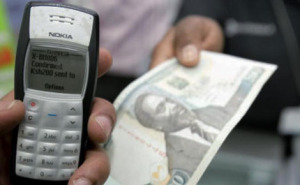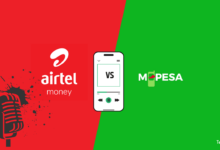93 percent of Kenyans using mBanking services

By Nixon Kanali, Nairobi
93 percent of Kenyans are using their mobile phones to carry out their bank transactions. This is according to The Mobile Entertainment Forum (MEF), the global community for mobile content and commerce.
These finding were revealed by MEF while giving a sneak preview of its Global Consumer Survey expected to be launched at next month’s MEF Global Forum from November 17th – 19th, in San Francisco. The Survey which analyzed the behaviors, attitudes and trends that are shaping the mobile industry and over 15,000 respondents in 15 countries were interviewed.
Kenya still remains the king of mobile banking, with 93% of consumers using their mobile device to perform banking, the survey reveals.
It further says that Kenyans are well aware of the benefits of m-education, with 45% saying it makes learning more convenient (versus a global average of 33%) and 39% appreciating its enabling of remote learning (versus a 26% global average). For most consumers Mobile privacy is the single biggest concern for today’s and also remains the largest obstacle to growth.
“All of these topics and more will be represented at MEF Global Forum – as part of the Global Day’s regional tracks. In addition, the highlighted trends will be discussed at #MEFGF14’s Innovation Day which looks at the companies and technologies that are advancing consumer adoption of mobile content and commerce worldwide,” said a blog post on MEF blog.
The survey covered countries from Mexico to UAE and from Nigeria to Indonesia and is set to look at essential facts about global mobile trends from wearables and mHealth to mobile payments and The Internet of Things.
In terms of wearable technologies and mHealth, Consumers in Asia (63%) and the Middle East (52%) are more likely to be aware of wearable devices than their European (43%) or US (42%) counterparts and another 62% of consumers in United Arab Emirates have seen a medical professional use a mobile device during diagnosis or treatment. In the UK it is just 31% and US it is 37%.
In terms of mPayments and Mobile money Kenya remains the king with 93% of consumers banking via mobile but in 2014 there has also been significant usagr in the Middle East (78%) and Nigeria (85% up from 76% in 2013) however, Germany is an early adopter of in-app purchases which stands at 44% versus a global average of 19%, though the adoption of mobile payment is growing worldwide.
Whereas in the US emphasis in making learning more fun or social. 20% US consumers say mobile makes learning more fun, and 14% believe mEducation is more social on the other hand Kenyans are well aware of the benefits of using their mobiles for educational purposes. 45% say it makes learning more convenient and 39% appreciate its enabling of remote learning (26% global average).
Another fact revealed was the fact that 44% of Africans transfer airtime as a form of currency versus a global average of 17%.
In terms of consumer experience the survey stated that a lack of trust in mobile remains the largest single obstacle to growth, and nowhere more so than in China and Mexico (41% and 40% versus an average of 34%). Brazil has also seen a sharp rise in trust-related concerns (from 31% to 36%).The use of a tablet computer alongside a mobile phone is on the increase, most notably in China and the UK (34% versus an average of 22%).
China continues to lead the way in the purchase of physical and perishable goods via mobile (52% versus a global average of 30%). In the UK and US, such purchases – while higher than average (36% and 35%) – are on the decline on the other hand Indian consumers are among the most likely to purchase via a social media page (23% versus a global average of 15%) while in the UK, it is just 11% and the US 16%.
The full results and analysis of the MEF Global Consumer Survey will be available to attendees at MEF Global Forum 2014 and discussed as part of the two-day international agenda. #MEFGF14 speakers will include senior executives from Andreessen Horrowitz, Mozilla, Twitter, LinkedIn, Uber, Etisalat Nigeria and Deutsche Telekom.
Follow #TechTrendsKE




